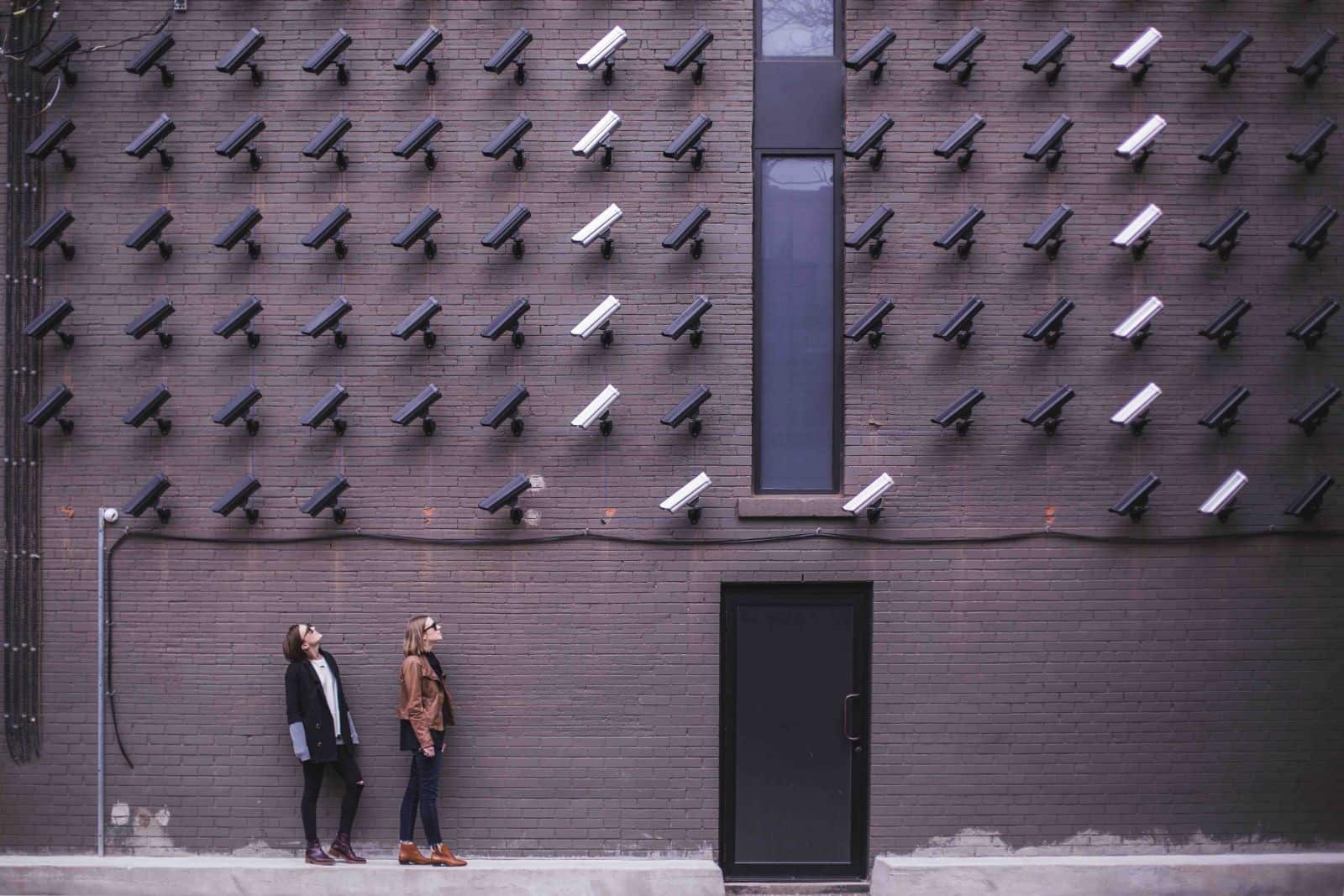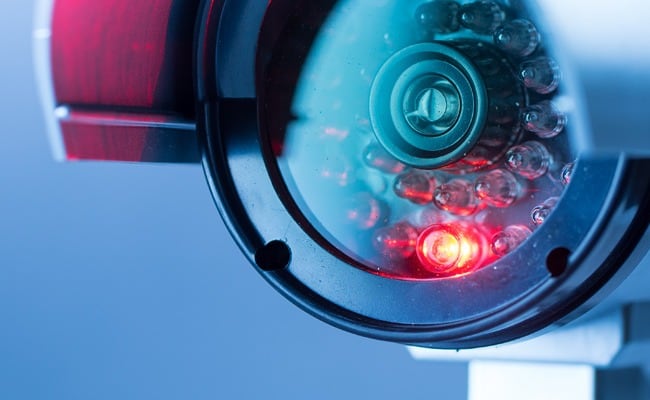Are Hidden Cameras Illegal In A Nj Workplace
As an employer, you might want some kind of surveillance in the workplace. But what is legal and what is allowed?
Is it okay to inform employees regarding cameras in the office? Cameras and other forms of surveillance in the workplace are legal. About employers will use video cameras for security purposes and to foreclose theft of office equipment. This is permissible as long as the employer informs the employees regarding the surveillance measures. There are legal limits, however, to how employers can use any form of surveillance.
It is common to use video cameras in the workplace today as long as workers are aware of such surveillance. While most of the time employers use video surveillance for their own interests like to foreclose theft inside the premises, video surveillance is also used to proceed employees safe when they are at work.
At that place are legal boundaries however, that employers know better than to cross when information technology comes to how and where to apply workplace surveillance. An employer, for case, cannot use cameras to monitor their workers' union activities. Federal wiretap constabulary dictates that employers can't under whatever circumstances record oral conversations which is why surveillance cameras don't take audio.
Employees should pay close attention to the existing company policies by going through the employee handbook which tin address camera surveillance at work as well every bit the country laws on the aforementioned.
Legal Reasons to Put Surveillance Cameras
If an employer is to put surveillance cameras in the workplace, at that place must be legitimate reasons for doing and so in a style that the cameras are not an invasion of the employees' privacy.
To Ensure That Employees Are Doing What Is Expected of Them
If as an employer, you suspect that your employees are not engaging in work-related activities while on the clock and instead are engaging in unlawful activities that may touch the business, its clients and other employees, information technology would exist within the law to have cameras at work. (Read our suggestions on workplace productivity and how tin can you enhance employee productivity )
)
Avoid Internal Theft
Sometimes theft in the workplace can be an result and in such a example, an employer has every right to have surveillance cameras inside the working premises.
If an employer suspects that employees are manipulating time clocks or worse stealing goods and office equipment, then it is inside the law to keep an eye on them, as long as state laws allow information technology.
Such recordings tin be used every bit evidence should such cases make it to the courts.
Prevent External Theft
In the workplace, theft doesn't take to be internal only. Sometimes like in shopping malls, some customers may be involved in theft and as such, the employer has every right to have surveillance cameras to prevent such activities that may affect the business in the long run.
To Ensure the Prophylactic of Employees and Customers
Security threatens are common especially at work and as such the security of your customers and employees remains the number one priority.
About of the time such security threats come from people who gain illegal access to the premises which is what security cameras monitor when they are installed at work. (We have written a related article – 25 physical security tips for employees )
)
Unlawful Use of Cameras for Surveillance

As noted, employers have a right to identify cameras in the role if it is done for a legitimate reason.
As such, it's no surprise to find cameras in some common workplace areas like sales floors, bank counters, store aisles as well every bit exists for security, to prevent internal and external theft and to ensure that employees are doing what is expected of them when at work.
Placing cameras in such areas where there is little or no expectation of privacy on the employees' side is accepted by the law.
All the same, there is a limit, on how far the employer can go in terms of video and photographic camera surveillance.
In some states, placing surveillance cameras in areas where the employee is expected to have some privacy is a violation of the law. Such areas include interruption rooms, washrooms and changing rooms.
The specific areas that cameras tin can be placed at varies from i country to another. As such, you need to consult with the labor bureau, an chaser or local employers to find out to what length you can go to with video and photographic camera surveillance at work.
There are also laws put in place to protect the privacy of customers and clients alike. For case, the constabulary limits how a business can utilise the personal information of their customers and clients, requiring businesses to maintain their confidentiality, by not sharing information similar medical records and social security numbers.
At the same fourth dimension apply of cameras that record audio conversations, besides violates the employee's privacy and is protected nether federal wiretapping laws whether at that place was a legitimate reason or not.
At the end of it all, regardless of why you want to have cameras at work, employees must exist made aware that in that location are cameras being used in the workplace.
Where There Are No Workplace Surveillance Laws
The laws on the use of cameras in the workplace are non clearly stipulated in all states, which makes information technology hard to make up one's mind what is lawful and what could get you in trouble with the police.
So what happens if you are operating a business in a state where the law doesn't clearly stipulate if cameras in the office are immune or prohibited? Chances are you will exist dealing with a lot of legal issues if an employee is to file a claim regarding the aforementioned unless y'all tin can prove that the cameras were used for legitimate reasons.
In such a case, the court will look at the employee's privacy expectations in order to determine if in that location was any privacy that was violated. If the reasonable privacy expectations of the employee were violated in whatsoever mode, then the employers will be held accountable.
Monitoring Union Activities
It is illegal for an employer to use cameras to monitor the union activities which include union conversations and meetings. Should an employer choose to do so, they should discuss it with the wedlock employees prior to recording such activities as stipulated in the National Labor Relations Act.
In addition to that, employers should never in any way use cameras to intimidate existing or prospective members of such unions.
Hidden Cameras and Notice Requirements

Installing video surveillance at work without the employees being in the know and use of hidden cameras is a violation of the employees' privacy.
In some states, informing the employees of video and camera surveillance when at piece of work is a mandatory requirement and courts in some other states offer the aforementioned protection to employees. (We have written a related article – efficient workplace security devices )
)
Due to that, employers are advised if not required to inform their employees of the existence of cameras within the premises. In diverse states, however, it should be noted that courts permit the employers to use hidden cameras in the workplace but nether specific circumstances.
In the terminate, however, if an employer uses cameras in advisable locations like bathrooms and changing rooms, violates the requirements to inform employees or uses the cameras inappropriately in a way that violates the privacy and safety of the employee, they are liable to legal action and lawsuits.
Understanding the Police
If you are an employer and are thinking almost installing cameras in the office whether for legitimate reasons or non, you lot should familiarize yourself beginning with both federal and country laws regarding camera surveillance at work.
You can contact the country's labor department or the U.S. Department of Labor to learn more about such laws.
Yous should also exist prepared for resistance also as resentment from the employees hence the need to inform them of the decision in a way that doesn't seem like y'all are questioning their loyalty or character. (Read more on what is workplace privacy )
)
Frequently Asked Questions
Tin an employer tape their employees at work? The constabulary dictates that it is illegal for an employer to listen to their employees' conversations or fifty-fifty record them for whatever reason. The Electronic Communications Privacy Act allows for employers to mind in on business organization calls but never should they record such conversations or listen to private ones.
Can an employer insist on taking photos of their employees? Something every bit simple as taking an employee'due south photo for a legitimate reason or not is seen equally a violation of their privacy since such a photo would be classified as personal information. An employer is required to seek consent from the employee and inform them of how they intend to use the photo.
Tin an employer search the employee's personal vehicle? An employer is legally allowed to search an employee's personal vehicle just if information technology is parked within the bounds and the employee is aware that past inbound the bounds their vehicles are liable to being searched.
Source: https://opensourcedworkplace.com/news/do-employers-have-to-inform-employees-of-cameras-in-the-office
Posted by: halpinhounch39.blogspot.com

0 Response to "Are Hidden Cameras Illegal In A Nj Workplace"
Post a Comment